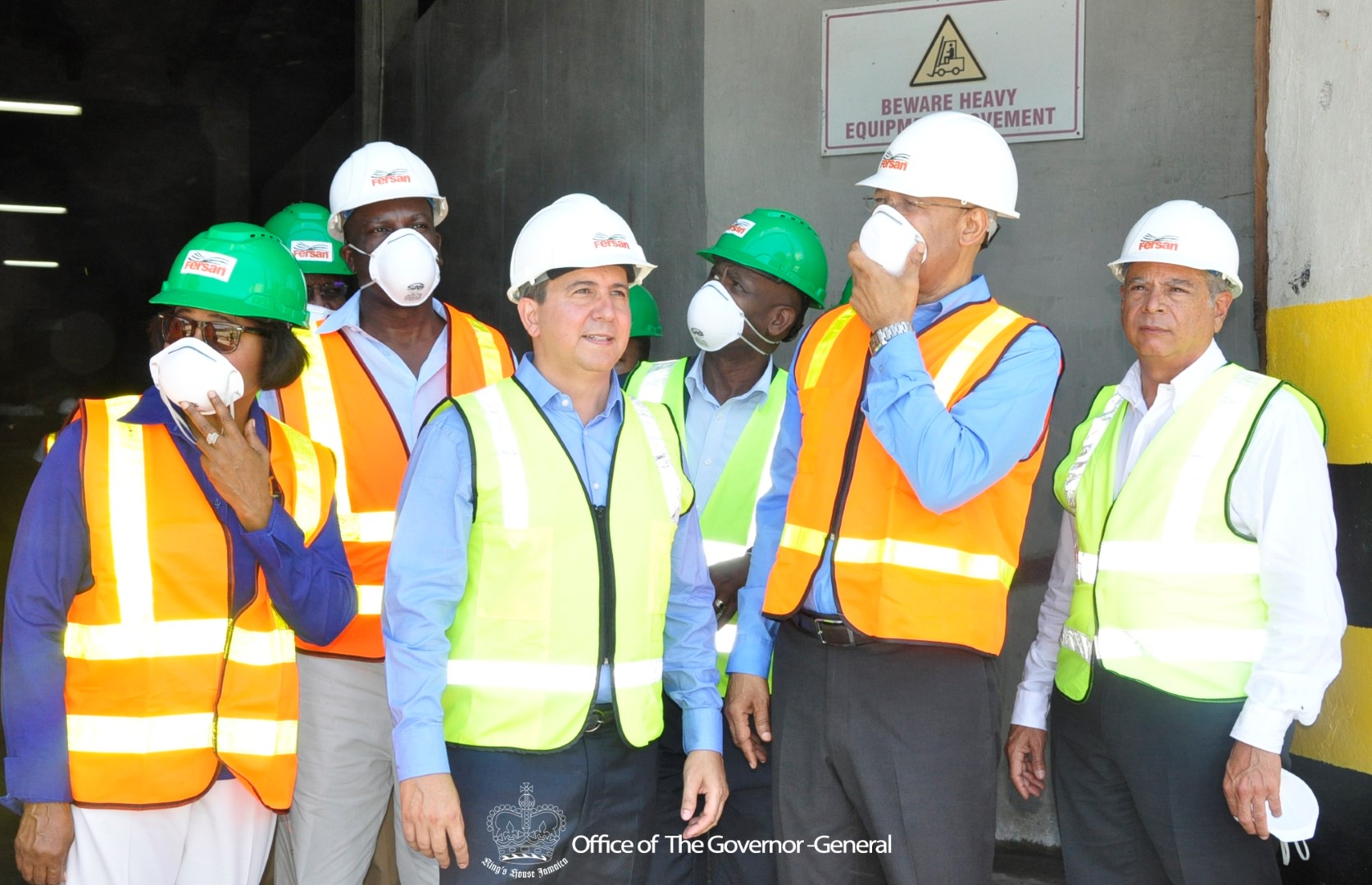The Industrial Relations (IR) Department is responsible for the promotion and maintenance of industrial harmony in Jamaica.
This is performed with respect to disputes classified specifically as “industrial disputes” relating primarily to wage and fringe benefits negotiations, disciplinary matters and claims made by Trade Unions for representational rights.
One of the principal objectives of the Department is to limit the number of industrial action and work stoppages that occur in the work environment. The Department also seeks to implement measures geared at being proactive in relation to industrial disputes and attempt to foster and facilitate a more co-operative industrial relations climate.
When a dispute is to be reported to the Ministry, the aggrieved worker, his/her representative or the employer is required to submit a letter formally referring the dispute to the Permanent Secretary. The dispute is then assessed and a conciliation meeting normally scheduled. The disputing parties then meet at the MLSS and attempt to settle the matter. Disputes not resolved by conciliation are usually referred to the Honourable Minister who may elect to refer the dispute to the Industrial Disputes Tribunal (IDT) for determination and settlement.
The Pre-Conciliation Unit, which is an arm of the Conciliation Section, provides advice and other assistance with the aim of fostering improved relations between management and labour, thereby facilitating a more cooperative industrial relations environment. Parties are required to submit their current Collective Labour Agreement to the Ministry for examination. Collective Agreements that will soon expire are collected and monitored by an Officer. Both the Employer and the Union are contacted and reminded of the date of expiration. The Ministry’s assistance may be sought in negotiating a new agreement.
Another method used by the Department in attempting to foster a harmonious industrial relations atmosphere, is an Outreach Programme which seeks primarily to inform both workers and employers about their rights under the Labour Law. The Department is cognizant of the fact that a quiet industrial relations climate will eventually lead to a more productive workplace and contribute greatly to the maintenance of law and order in the wider society.
LABOUR LAWS
Click on the Labour Laws below to read:
- Labour Relations and Industrial Disputes Act
- Labour Relations and Industrial Disputes Regulations and Code
- The Protected Disclosures Act 2011
- Maternity Leave Act
- The Holidays (Public General) Act
- Holidays With Pay Act
- Holidays With Pay Act Amendment 2009
- Holidays with Pay Act (Amendment) 2009-Appointed Date Notice
- Holidays with Pay Order of 1973
- Employment (Flexible Work Arrangements) (Miscellaneous Provisions) Act 2014
- The Employment Termination and Redundancy Payments Act
- The Employment Termination and Redundancy Regulations
Frequently Ask Questions
Can I lay off workers for 120 days?
Yes, in keeping with the Employment Termination and Redundancy Payments Act, you may.
The MLSS however encourages employers to use lay-off as last resort and therefore examine other creative and innovative strategies including work from home, flexible hours and rotation as alternatives to remain productive and continue to offer services during the COVID-19 pandemic.
Can I extend the lay-off beyond 120 days?
At the expiration of the 120 days period, the employee, if not recalled to work, may elect in writing to be made redundant and the employer would be obliged to honour that request.
As an employer can I send workers on vacation?
No – only if the worker elects to apply for vacation leave that might be due to him/her at that particular time. The worker must voluntarily apply for vacation leave and should not be forced to take that course of action.
As an employer can I combine vacation leave and period of lay-off?
Vacation leave and lay-off are two separate items under the Labour Law and should be treated as such. Vacation leave is
paid leave, while “lay-off” may be absence from work without pay.
If a worker opts for vacation leave prior to a period of lay-off this is permissible.
I have been laid off, what payments are due to me?
A worker can be laid-off from work for a period not exceeding 120 days and the employer can opt not to pay for this period or may determine the level of payment.
The worker is due salary for days worked prior to lay-off.
In accordance with Section 5 (3)(b) of the Employment Termination and Redundancy Payments Act, the worker is deemed to be laid off without pay even in instances where the worker receives some pay or is engaged to work for limited times only.
I have a dispute with my employer as I was fired without cause. What can I do?
A worker can formally write to the Ministry of Labour and Social Security to briefly, but clearly, outline the circumstances leading up to the termination of their employment, if they are of the view that they were “fired” without a justified cause.
I have been laid off and not given a letter, what can I do?
While it would be better to have received a letter of lay-off from your employer it is not a requirement by law.
It is suggested that you write to your employer to enquire when you are expected to return to work.
Employers are also encouraged to document changes in its employment arrangement as documentary evidence in the event of an industrial dispute.
What kind of leave is due if someone has a miscarriage?
Under the Maternity Leave Act it depends at what point in the pregnancy the female worker had the miscarriage.
If she was at least 28 weeks in confinement and was employed for a minimum of fifty- two (52) weeks she can qualify for normal maternity leave.
If not, she can opt to submit a Medical Certificate for sick leave if she is absent from work over three (3) days.
If I have COVID-19 what kind of leave is due? What happens to my pay?
Under the Holidays with Pay Order (1973) workers are entitled to ten (10) days sick leave per year. There is no special leave under our current Labour Laws for COVID 19.
The Holidays with Pay Order provides for the worker to be paid whilst on sick leave to their credit. In the event the worker does not qualify for sick leave with pay, the worker
is still entitled to the period of absence as determined by the medical practitioner (sick leave without pay).
If a worker needs to be quarantined how are those days treated? Is it from their leave? As the employer, am I required to pay the workers?
If a worker is quarantined the period away from work can be treated as an absence without pay. Workers who are eligible may opt to apply for vacation leave if they so wish.
Workers who are ordered to be quarantined must remain away from the workplace for the prescribed period.














